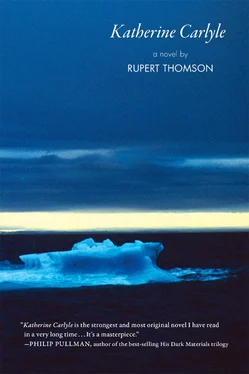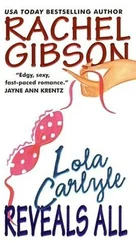In the living room, too, the wallpaper is oppressive — a psychedelic design of orange-and-yellow swirls. On the sideboard is a TV with a framed picture of a boy and a girl on top. Though they’re dressed in matching fleeces, they don’t appear to be twins. The boy has a pudding-basin haircut. The girl is smiling, but her lips are clamped tight shut, as mine often were in photographs when my milk teeth started falling out. On the other side of the room are two brown armchairs and a sofa covered in a crocheted blanket. Above the sofa is a large creased map of the world. Given how far north I am, it’s hard to believe in all those countries, especially the warm ones, but maybe that’s exactly why the map is there, to link the cleaning lady to the mainland, her past, the children in the picture. Vertigo grips me for a second, just as it did on my first morning.
I should air the place, as Zhenya advised. I open the cupboard between the kitchen and the bathroom and flick the switch. The boiler responds with a reassuring whoomph . I listen to the radiator pipes begin to tick. It will be a relief to move out of the hotel, away from the woman with the white masklike face, though I feel differently about her now Zhenya has told me something of her story. The woman’s name is Ivonna, and her husband is serving a long prison sentence in Ukraine. That, perhaps, Zhenya said in her deadpan way, is why she does not smile.
/
There are some things you can’t prepare for. When I realized I would never see my mother again I locked myself in the bathroom. Now what? Thinking I should be sick I knelt on the floor, leaned over the toilet bowl and retched. Nothing came up. I breathed the musty coolness for a while, then I got to my feet again and studied myself in the mirror. My face looked misshapen, sloppy, as if the two halves didn’t fit together properly. For fuck’s sake , I said, watching my mouth. It was something I’d heard my father say, when my mother accused him of not loving her, or not being around enough, or having an affair. For fuck’s sake , I said, you knew this was coming . It didn’t help, though. Nothing helped.
The morning after my mother died I heard the doctor say that her body would have to be removed from the apartment. Seized by a kind of terror, I hurled myself from one room to another, picking items up, then putting them down again. I couldn’t allow my mother to be taken. I had to stop that happening. But how? I stood in the kitchen, a pair of scissors in my hand, the two blades overlapping, knifelike. My father was on the terrace. He had his arms round Auntie Lottie and held her carefully, as if she were not one thing but several, as though she had come apart. Her shoulders were shaking. He stared over the top of her head and out across the tiled rooftops. He had the face of a statue, his features gritty, dry.
I crept back to where my mother was. The doctor had gone, and the door stood ajar. The silence coming from inside the room was exaggerated, artificial, as if there were people hiding. As if they might suddenly jump out. Surprise! I found it hard to believe that she was not alive and yet still there. I slipped round the edge of the door. She lay on her back with a sheet pulled up to her neck, her lips slightly parted. She might have died in midsentence or midsong. I Fall to Pieces. Crazy. Help Me Make It Through the Night .
“It’s only me,” I whispered.
Since she was gone it seemed tasteless or insensitive to look at her, but it was impossible to look anywhere else. All forms of looking were problematic; it would have been easier to have no eyes. I kept thinking she would come back to life. Sit up, smother a yawn. Run a hand through her hair, which was stiff and coppery. She would glance round the room, puzzled, but also mildly entertained. I must have dozed off. What time is it?
At first I thought I might cut her fingernails and keep the clippings but I couldn’t bring myself to disturb the sheet. Instead, I climbed onto the covers and was kneeling over her, snipping off a piece of hair, when my father walked in.
“No,” he cried out, and pulled me roughly off the bed.
I landed on the floor and hit my head on the edge of a chest of drawers. There was no blood but I felt a bruise form, the kind of swelling my mother would have called “an egg.” The scissors lay in an X shape on the tiles, the blades blue with reflected sky.
“Oh God,” my father said. “I’m sorry.” He walked to the window. “I’m just so tired.”
I picked myself up, a lock of my mother’s hair clutched tightly in my fist. That was why I hadn’t been able to break my fall. I hadn’t wanted to let go of her hair, or let him know I had it.
He faced back into the room and took a step towards me. “Forgive me, Kit.”
“Yes,” I said. “All right.”
But I didn’t forgive him. He hadn’t earned it. Why didn’t he understand that I couldn’t bear to lose my mother, and that I wanted to keep a part of her forever? Why couldn’t he see that a black wind was blowing through me, wreaking havoc? All I was guilty of was loving her too much. Like him.
/
The weather is becoming unpredictable. One afternoon at the beginning of November the sky has a green glow to it, a subterranean color that turns the fjord below a sulky charcoal gray. The next day there’s a whiteout. It’s as if someone stuck blank paper over my windows. I can’t see the short flight of steps leading to my building, let alone the football pitch. Sometimes the light is so delicate — primrose, oyster, eyelid mauve — that the landscape looks hand-tinted, like a photo from the early 1900s. Then, in the second week, polar night descends, a cloth thrown abruptly over the town. The footpaths that remain unlit are hazardous, and time is difficult to gauge. Under the spotlights the snow on the ground is brownish yellow, the color of burnt butter.
Though still an object of curiosity to the miners and their families, I feel I’m beginning to earn their respect. I’m not like all the other foreign visitors, who spend an hour gawping at the town, then scuttle back to the comfort of the tourist ship. I’m not a voyeur, as Zhenya would say. I live in a residential block. I eat in the canteen. I work long hours. I’m even learning the language. People are surprised by my commitment. Flattered. I chose this place. I’m making it my own.
On the morning of November 15, my twentieth birthday, I arrive at the library, as usual. Zhenya hands me a blue envelope and a small package wrapped in drab green paper.
“You’re supposed to be saving your money,” I tell her, “not spending it.”
She shrugs. “It didn’t cost so much.”
On the card are two white kittens in a wicker basket. Inside are the words “Happy Birthday — from Zhenya.” It’s so undemonstrative, so matter-of-fact. So very like her. I unwrap the present. Inside is a guide to Svalbard, written in English, and something that looks like a tube of toothpaste. She found the book in the library, she says.
“And this?” I hold up the tube.
“It’s cream.”
She takes my hands and looks at them. The sides of my fingers are hard and shiny, like plastic, and the skin has cracked open in several places. It’s partly my cleaning job, partly the cold.
She asks if I would like to come home with her that evening. She has invited some friends round to her apartment, she says. There will be plenty to eat and drink.
“Will you sing?” I ask.
She smiles, but doesn’t answer.
After work, I follow her down a path and across the football pitch. We climb the slope to the newly renovated block, our heads bent against a wind that tears out of the northeast.
Zhenya’s apartment is far more spacious than mine, her living room filled with pine furniture that could have come from IKEA. There is a thirty-inch flat-screen TV and an old-fashioned stereo with a record deck and wooden speakers. Pinned to the wall is a huge orange-and-black flag featuring a pickax crossed with a hammer. Shakhtar Donetsk, Zhenya tells me. The football team her husband supports.
Читать дальше












